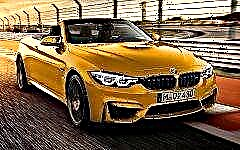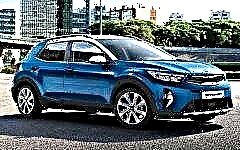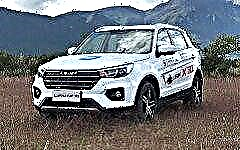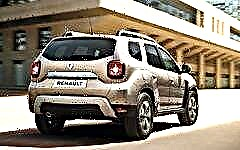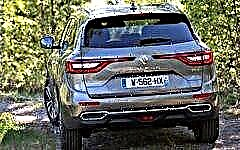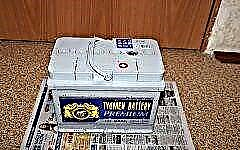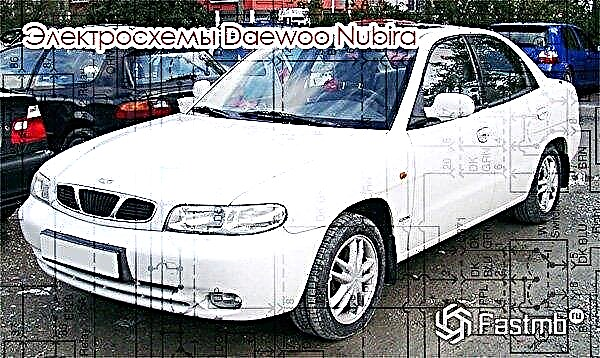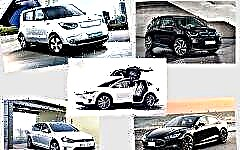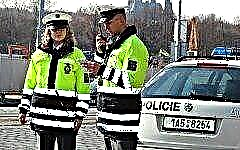

The content of the article:
- Where can they stop
- Prepare for "guerrilla warfare"
- Reasons for stopping
- Attention - camera!
- How to communicate with police officers
- No signatures
- How to submit documents
- "I disagree"
- Breath! Do not breath
- Fines on European roads
When going to Europe by car, you should familiarize yourself not only with the local traffic rules, but also with the specifics of the work of the traffic police. In some countries it is comparable to the Russian one, and in some it has fundamental differences, the difference in internal instructions for police officers. Some of the peculiarities of communication with European law enforcement officers - in the next review.
1. Where can they stop

In each country, there are stationary posts, at which cars are mainly stopped for routine checks of documents and security measures followed by the driver and his passengers.
In practice, however, they do not always stop at stationary points, especially if they are located on a busy highway with heavy traffic. The police try not to create obstacles, and therefore do not "isolate" cars from the stream, if there are no serious reasons for that.
Now more and more stationary points are being replaced by cameras and patrols. Patrol cars, as a rule, have a special color, but in some countries - Poland, Germany - the police move in inconspicuous cars, which are "issued" only by a light board.
2. Prepare for "guerrilla warfare"

They also do not shy away from the "partisan methods" that are prohibited in Russia. If our police officers at least formally put their cars so that they are visible, then in Europe there is no such requirement. Therefore, you should prepare for the fact that in the most unpredictable place a police officer can jump out of the bushes like a devil from a snuffbox.
While driving, a car can be stopped if it arouses suspicion by its inappropriate behavior or if it exceeds speed. If a police car moves in the oncoming lane, then it can signal the driver to stop, noticing, for example, an unfastened seat belt.
Separately, I would like to note the solidarity of motorists, who, just like our compatriots, will definitely warn about the danger of oncoming cars by winking their headlights.
3. Reasons for stopping

A patrol can follow a specific route, observe the most dangerous road sections, as well as a truck, and can track the behavior of a particular driver that arouses suspicion. Most often, they look closely at truckers and just cars carrying large loads. Moreover, in the event of a stop and inspection, one of the most common fines is incorrect cargo securing.
When carrying out checks, European patrols are not limited in their actions: they can check for alcohol or drugs, inspect the cargo, take it to the police station, no matter how far away it is, and use physical force if necessary.
In Poland, such stops for drivers to check documents are rare, local police do not like to bother themselves. But for the German police, this is a favorite pastime, and they will stop everyone at every opportunity.
In addition, in Germany, absolutely all law enforcement officers have such rights, but in France such actions can only be performed by traffic police.
4. Attention - camera!

In Russia, filming a police officer on camera is allowed, which allows you to control the work of employees, but in Europe this is rarely allowed. In fact, filming police officers is possible only in a limited number of countries, mainly in Eastern Europe - Poland, the Czech Republic and some other states.
In Italy, France, Germany, filming is strictly prohibited. If in most European countries the driver is simply pointed out that such an action is illegal, then in Germany they can even be arrested. It's all about the peculiarities of permission to take pictures of people in this country, where such an action is strictly regulated in principle, and with regard to police officers in particular.
5. How to communicate with police officers

When stopping by the patrol service, you should not panic and nervous, so as not to create the impression of a guilty person. Despite the fact that the rights of the police are quite extensive, in most cases they are quite correct. If you just answer the questions asked and fulfill the requirements, the acquaintance with the foreign police will end at the check of documents.
In terms of the language barrier, all traffic police in Europe must take English courses and may well communicate with a foreign citizen. An exception can be called France, where patriotism is strong, and therefore they are reluctant to learn another language.
6. No signatures

Not knowing a foreign language at all or at an insufficient level, it is not recommended to sign any papers. In this case, you should contact the consulate and consult about further actions.
The police are sympathetic to such situations and even help with a call to the employee of the corresponding consulate.
7. How to submit documents

A common mistake that Russian motorists make on European roads is showing documents through glass. In Europe, this is not practiced, since the instructions for the traffic police clearly indicate the need to take the certificate and other necessary documents in hand. This is done to verify the authenticity, and also so that the driver in this case does not try to escape.
Attempts to hold on to the document, as well as showing them through glass, can be mistaken for a way to hide the violation. In this case, the police officer has the right to detain a suspicious motorist, including with the use of force.
However, the motorist himself needs to be in the cabin, since direct contact of a police officer with citizens is not allowed abroad.
That is, the correct behavior when meeting with a patrol is as follows: when asked to stop, you should stand on the side of the road and, without leaving the car, wait for a policeman to approach. Further - calmly comply with his requirements.
8. "Disagree"
If the motorist does not agree with the decision of the police officer, one should not dispute it directly on the spot, especially if there is a language barrier. Violent protests can be perceived as aggression and assault on a police officer, and, consequently, an administrative arrest.
The correct solution would be to ask you to write down the fact of disagreement in the protocol, then apply for a solution to the nearest consular section, where they will help resolve the problem, taking into account the peculiarities of local law enforcement practice.
In general, there are no situations when patrol officers are trying to write out a fine for a non-existent violation in Europe, because all police actions are recorded by registrars.
9. Breathe - don't breathe

Another question that drivers are interested in is testing for alcohol and drugs. Each country has its own rules and features regarding this procedure, but refusal to test with a high degree of probability will lead such a driver to the site.
Therefore, if the patrol officer offers to be tested, it is recommended not to refuse.But you need to understand that a driver who does not agree with the results in any country may demand to repeat the check at the nearest medical institution. But this can only be required after initial testing on the road.
In all European countries, refusal to take the test actually means that the driver is recognized as alcoholic, and the fines for this violation are very serious. In Finland, for example, you can get a real term of imprisonment of up to 6 months.
10. Fines on European roads

The amount and procedure for paying the fine for the violation committed differs from country to country. For example, in Italy, Spain, Poland, the driver will be offered to pay the fine on the spot through the payment terminal, which seems to be the best option. In addition, in these countries, when there are several fines, the police issue only one of them, the largest.
In Germany, local citizens traditionally pay fines through a bank, while tourists are offered to pay in cash. This should not be taken as soliciting a bribe, as the driver will receive an official receipt for payment.
Conclusion
The European police are distinguished by their calmness, friendliness and the highest professionalism. They are not faced with the task of "making money" on the drivers, but solely to control traffic safety. Therefore, if you follow the rules, you can not be afraid of undue attention from law enforcement officers.
In the event of a car stopping by a patrolman, the main rule is politeness and a desire to make contact so that the policeman can see that the driver has nothing to hide.

